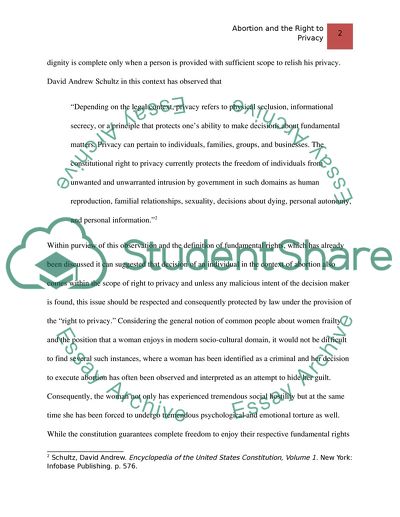Cite this document
(Abortion and the Right to Privacy Term Paper Example | Topics and Well Written Essays - 2250 words, n.d.)
Abortion and the Right to Privacy Term Paper Example | Topics and Well Written Essays - 2250 words. Retrieved from https://studentshare.org/social-science/1745995-abortion-and-the-right-to-privacy
Abortion and the Right to Privacy Term Paper Example | Topics and Well Written Essays - 2250 words. Retrieved from https://studentshare.org/social-science/1745995-abortion-and-the-right-to-privacy
(Abortion and the Right to Privacy Term Paper Example | Topics and Well Written Essays - 2250 Words)
Abortion and the Right to Privacy Term Paper Example | Topics and Well Written Essays - 2250 Words. https://studentshare.org/social-science/1745995-abortion-and-the-right-to-privacy.
Abortion and the Right to Privacy Term Paper Example | Topics and Well Written Essays - 2250 Words. https://studentshare.org/social-science/1745995-abortion-and-the-right-to-privacy.
“Abortion and the Right to Privacy Term Paper Example | Topics and Well Written Essays - 2250 Words”, n.d. https://studentshare.org/social-science/1745995-abortion-and-the-right-to-privacy.


